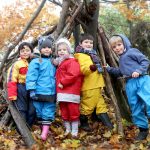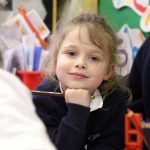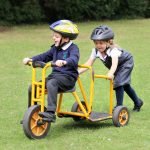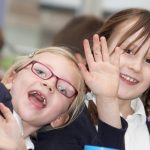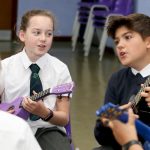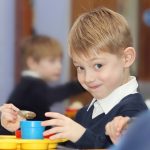Class 5 Newsletter – Spring Term
Spring Newsletter, Year 5 Badger Class
Welcome back! We hope you have enjoyed your holidays and are looking forward to a good 2020. We outline below the curriculum areas to be covered this term.
English
In English this term, we will be reading a classic text as a class and discussing similarities and variations in themes, style and language choices with modern literature. In our own writing we will be developing our ability to vary sentence structures and to write at length with increasing cohesion and impact. We will be linking with our topic learning to put our research and report writing into practise and we will be developing our skills of discussion and debate, both in writing and in class debates. Our word focus will continue to develop the children’s understanding of etymology, identifying word roots and adding prefixes and suffixes to alter meaning. Self- and peer-assessment remain important areas for development and we will be using a range of approaches to improve the children’s ability to assess and improve their own written work. Our reading groups will support the children to explore their understanding of and responses to texts and we encourage the children to read as widely as possible both within school and at home.
Maths
We will start this term by looking at place value involving 6-digit numbers and the children will use negative numbers, calculating differences between temperatures and rises and falls in temperature. They will use mental addition and subtraction involving money and will calculate the addition of decimals, using rounding and estimating to help. The children will continue to practise their times tables regularly and will also be multiplying and dividing by 10, 100 and 1000. They will use mental strategies to multiply and divide by 5, 20, 6, 4 and 8 and will use the short multiplication and division methods to multiply and divide. We will revise comparing fractions with related denominators, find unit and non-unit fractions of amounts and learn decimal equivalents for halves, quarters, fifths, tenths and hundredths. The children will work out perimeter, area and volume and use co-ordinates and line graphs. We will regularly set the children problem solving investigations to develop their real life problem solving and reasoning skills.
History and Geography
This term our topic focus will be historical, learning about our history from the Stone Age to the Iron Age. We will develop our understanding of historical timelines, using terminology correctly and relating UK events with those on a more global scale. Understanding historical sources and their reliability is an important aspect of our learning and we will look in particular at information that can be obtained from archaeological excavations, with specific reference for this topic to the findings at Skara Brae on Orkney.
Science
This term we will continue to learn about forces, discussing what gravity and resistance are and identifying the effects of friction and water resistance. We will then learn about Earth and Space. The children will describe the movement of the Earth, and other planets, relative to the Sun in the solar system and they will describe the movement of the Moon relative to the Earth. The children will use the idea of the Earth’s rotation to explain day and night and the apparent movement of the sun across the sky. The children will have lots of opportunities to work scientifically, planning different types of scientific enquiries to answer questions. They will take measurements, use a range of scientific equipment, record results using scientific diagrams and labels, and report and present their findings using conclusions and scientific explanations.
Computing
The children will learn about programming; they will be introduced to flowcharts and how they are used to program and control devices. The children will be taught to build sequences of instructions, control multiple outputs and structure algorithms with decisions and inputs. The children will also be using word processing to present their work.
Art and DT
Our Art and DT will link with our history topic this term; we will be studying cave paintings and comparing these to modern day graffiti. We will look at the work of some well-known graffiti artists and practise producing our own graffiti art works inspired by our favourite artists. We will also look at making our own, stone-age style, clay pots.
In DT, we will look at some of the pieces of jewellery found from the bronze and iron ages, identifying key designs and shapes and making our own pieces of jewellery using cardboard, papier mache and string for relief detail. Our design focus will be ensuring a good quality of finish for our end product as well as the process of refining and improving our designs during the production process.
RE and PSHE
In RE, we will be learning about and comparing creation stories from the Christian and Hindu faiths as well as studying Hindu death rituals and comparing these with Christian practices, linking with the Easter story.
Our PSHE this term will focus on healthy lifestyles and relationships. This will include how we can keep ourselves healthy, both physically and mentally, continuing our learning about focus and concentration from the Paws b curriculum and building our ability to listen to and understand others. We will consider what is meant by ‘discrimination’ and about conflict resolution in our own lives and more widely.
Music
This term the children will be taught by a specialist teacher. They will listen to and learn to use brass instruments as well as learning to read simple musical scores.
PE
For the first half term, the children will be partaking in sports hall athletics and netball. In the second half term they will take part in tag rugby and hockey.
French
We will be continuing to practice our spoken French and our numbers to 50 and will be broadening our vocabulary to order a range of food items in a café or shop and tell the time to the quarter hour. We are beginning to recognize the use of agreement in French and to apply this in our own sentence making and are becoming increasingly confident to spell and pronounce French words correctly. Our French ‘running dictations’ help with both these skills.
Homework
The children will continue to be asked to complete 3 pieces of homework each week; these will include spellings and one piece each of English and maths homework, each taking approximately 40 minutes to complete. As previously, homework should build upon work in class and it should be clear to your child what is required of them. Please limit your support to ensuring that they have the opportunity to complete their work in time, discussing the activity required – asking them to explain their work to you can help to clarify and embed their learning – and making sure that they present their work neatly and to the best of their ability. If they have any questions, we are always happy to answer them.
As ever, please encourage your child in their reading, giving them the opportunity where possible to sample a wide range of text types and support their interest in reading by discussing what they have read and by continuing to share texts together when possible. They should read daily at home, completing reading challenges regularly as they wish.
If you have any concerns or issues you would like to discuss regarding your child, please don’t hesitate to ask us any questions either at the door at the end of the day or via the office if you would like to arrange a more formal meeting. Please remember the e-safety session later this month – it really is beneficial to all parents and those working with children to be aware of some of the issues in this area and to hear the latest advice in tackling these.
Thank you for your ongoing support.
Mrs Rudkin and Miss Sabin













